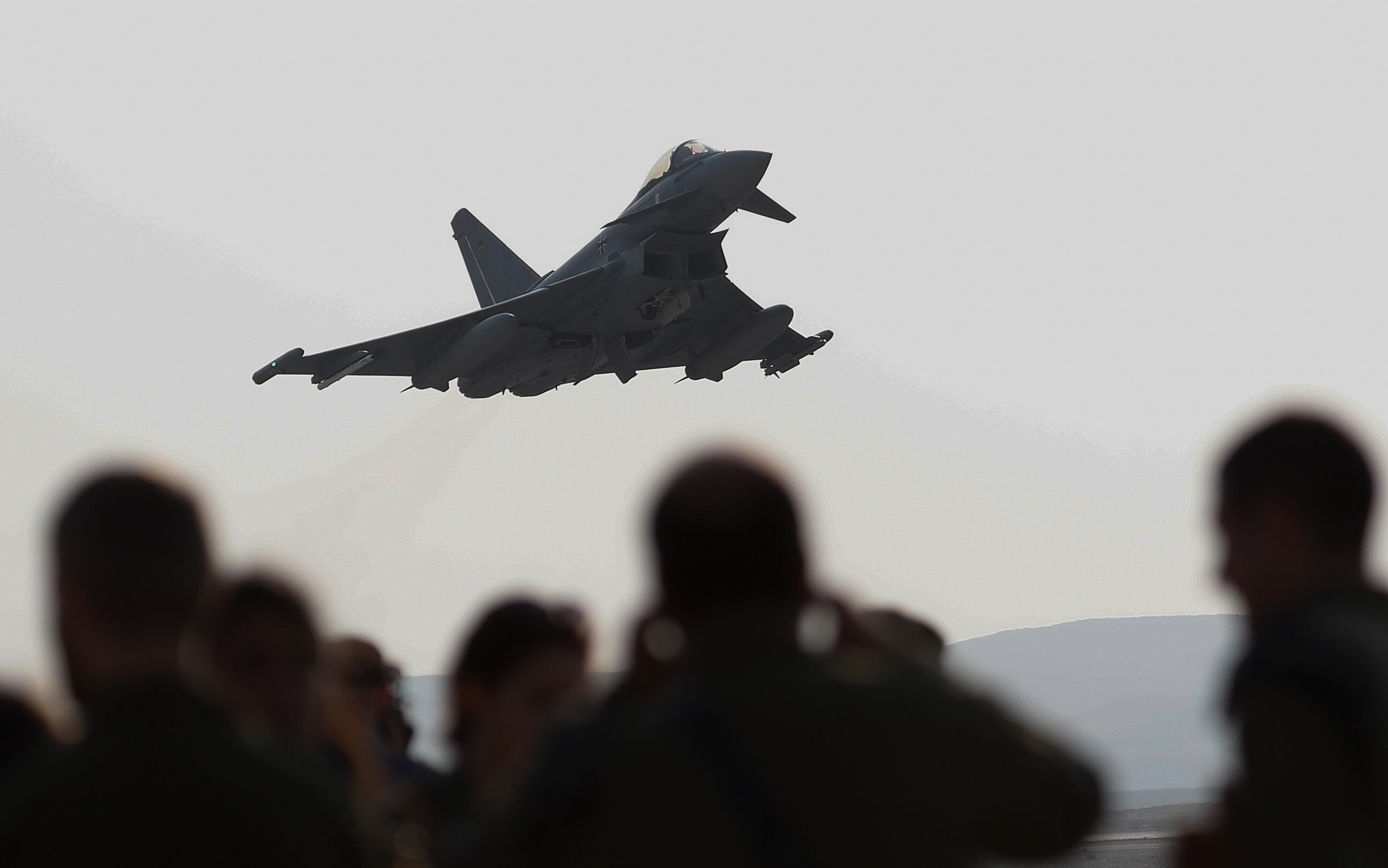BRUSSELS – The Dutch chief of defense says it would be “stupid” if the UK did not continue to be closely involved in EU-funded defense projects even when it is no longer a member of the bloc.
But British future involvement in EU-led initiatives such as the European Defence Fund and PESCO (Permanent Structured Cooperation) remains unclear, with EU member states yet to decide on a legal framework for third-party participation.
With Brexit, the UK will technically become an outsider to the European Union’s push for greater defense autonomy. That means London will no longer take part in EU decision-making or operational entities, and any British contribution to an EU operation will be subject to the rules that apply to third countries.
Adm. Rob Bauer, chief of defense in The Netherlands, told Defense News he believes it is “imperative” that the UK remains “very closely” involved in such projects.
Speaking at the sidelines of the annual European Defence Agency conference in Brussels on Thursday, Bauer said, “Remember, from a military point of view, the UK, even after Brexit, will still be a member of NATO and part of Europe. It is leaving the EU, not Europe. If the focus in Europe is on security then the UK should be part of that. To do otherwise would be stupid.”
The PESCO initiative aims to develop and deploy forces at the EU level. Nearly 50 projects have been unveiled to date with the aim of pushing member states to work more closely together in the area of security and defense.
RELATED

So far, €13 billion has been allocated to the EDF which seeks to promote cross-border collaboration on defense research and technology projects, plus another €6.5 billion in the pipeline to upgrade roads, bridges, rail lines, ports and airports for military mobility, and €16 billion on space programs.
Formal rules on third-party access to PESCO projects and the EDF are still being decided. Discussions are continuing at EU member state level, and no final decision is expected until the UK formally exits the EU, officials here said. London’s departure has been delayed for the third time until Jan. 31, 2020.
Bauer said, “I have spoken to the Brits about this and they have told me how difficult these discussions have been and continue to be. It is clear that agreement on access is certainly not a done deal.”
“But we need to be pragmatic about this and continue to work together in the future.”
His comments were broadly echoed by Lieutenant General Franz Leitgeb, Austria’s Military Representative to the EU and NATO, another attendee at the EDA summit who told Defense News, “After Brexit, the UK will have third-party status, so third-party partnership rules will apply regarding its contribution to and participation in EU-funded projects like PESCO.
“We still need to decide what precisely this means in the UK case but, whatever transpires, the UK has to realise this is a two-way street. That means that if the UK and its defense industry is to have access to EU-funded schemes and projects it has to contribute to these.”
“Whatever happens we’re going to need the current close relations on defense between the two sides to continue.”
Further comment came from Benedikt Zimmer, state secretary at the German defense ministry, who took part in a session on PESCO and the EDF and said, “The more open cooperation is after Brexit, the better.”
In a keynote address, Michel Barnier, the EU’s chief Brexit negotiator, warned that UK involvement in EU defense and security would only become clearer once discussions start, probably at the start of 2020, on a political agreement between the two sides.
RELATED

Barnier told the packed audience, comprising senior military officials and personnel, that reaching agreement will be an “enormous challenge,” adding, “I do not want to interfere in the current UK election campaign but I am sure the Brits will still have an appetite for continued cooperation in the defense field. But, even so, they have to realize it will no longer be business as normal. I hope that UK defense companies, providing the rules are met, will still participate in European defense. We have the tools to make it happen but we still need to find a new framework for future cooperation.”
More than 50 non-EU states have participated in Common Security and Defence Policy (CSDP) operations since its first mission in 2003, including four regional powers – namely Turkey, Russia, Brazil and South Africa.
The official British position on security and defense is ambitious about the possible scope of the UK-EU relationship post-Brexit, talking about a “deep and special partnership” that would go “beyond existing third country arrangements.”
However, little in the recent past suggests the UK would seek much CSDP involvement once no longer a member: the UK has not been the most enthusiastic supporter of the EU’s defense agenda thus far, and it’s questionable if this would change after Brexit.
Martin Banks covered the European Union, NATO and affairs in Belgium for Defense News.








